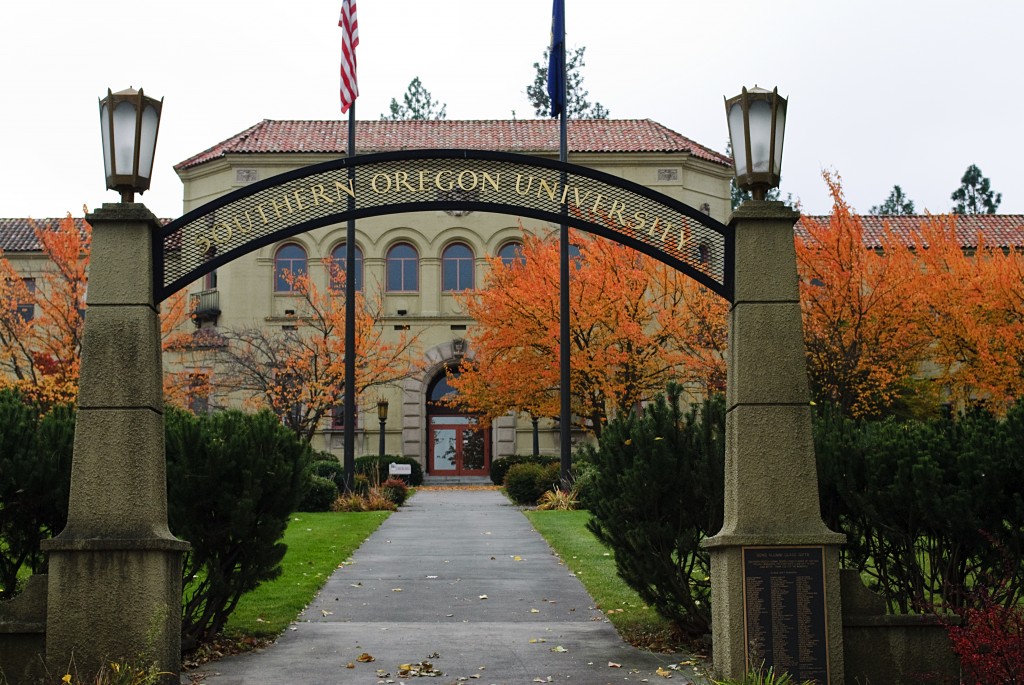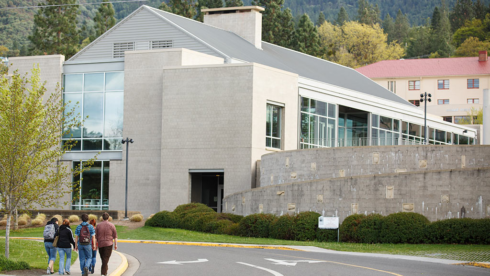
Southern Oregon University is setting a national example for support and intervention through campus programs that address the individual needs of sexual assault survivors.
On Oct. 11 Senator Ron Wyden sat at a round table with students, staff, and faculty to discuss SOU’s supportive and preventative sexual assault resources, as well as Title IX implementation into student orientation.
Wyden is part of the bipartisan effort to pass the Campus Accountability and Safety Act (CASA), which requires college campuses to report cases of sexual assault as well as provide Title IX training to students, faculty, and staff.
“He noticed that SOU has really great prevention and response work when it comes to Title IX violations,” said Erica Lautrup, a speaker for the ASSOU Senate. She says CASA “brings more accountability to universities when it comes to sexual assault.”
Kendall Bartley, a Women’s Resource Center employee and activist noted that the bill will “give other universities incentives to gather reports on sexual assaults and violence… because right now there’s no incentives, and for some schools, there’s incentives to not have any reports.”
“If a school reports very few, or zero sexual assault allegations, that’s a huge red flag,” Lautrup continued, “that means the university is either not acknowledging Title IX violations or sweeping them under the rug.”
SOU has had an increase in sexual assault allegations in the past few years, which “seems like a scary thing, but it actually is really good,” said Lautrup. “It means survivors feel comfortable coming forward, are seeking resources, and going through the process of healing.”
SOU students were recently provided with an online Title IX training module that will help them better understand the provision and what it means to them and their peers in the context of their educational experience. “It’s for students to know what their options are,” said Bartley. “We’re about prevention and education.”
The hope is that through education, not only will survivors seek out the vast resources available to them, but that acts of violence will dissipate as more students understand the impact of their actions.
According to Lautrup this program asks, “what do you need, and what do you want.” These questions set SOU apart from other universities where students are told how they should respond to traumatic events, even if it’s not what the survivor wants. “SOU caters and molds itself to the survivor as opposed to asking the survivor to mold itself to the university,” she said.
Wyden’s apparent concern for student safety serves as motivation to implement effective policies nationwide, potentially using SOU as an example of how he would like campuses to address the needs of their students.
“We’re trying to change culture,” said Lautrup. Although doing so may prove to be a long and challenging task, SOU and lawmakers like Wyden are taking the first steps to implementing substantial change in the lives of students everywhere.



